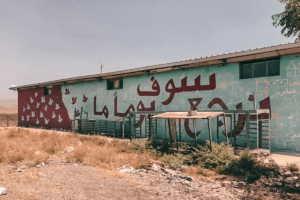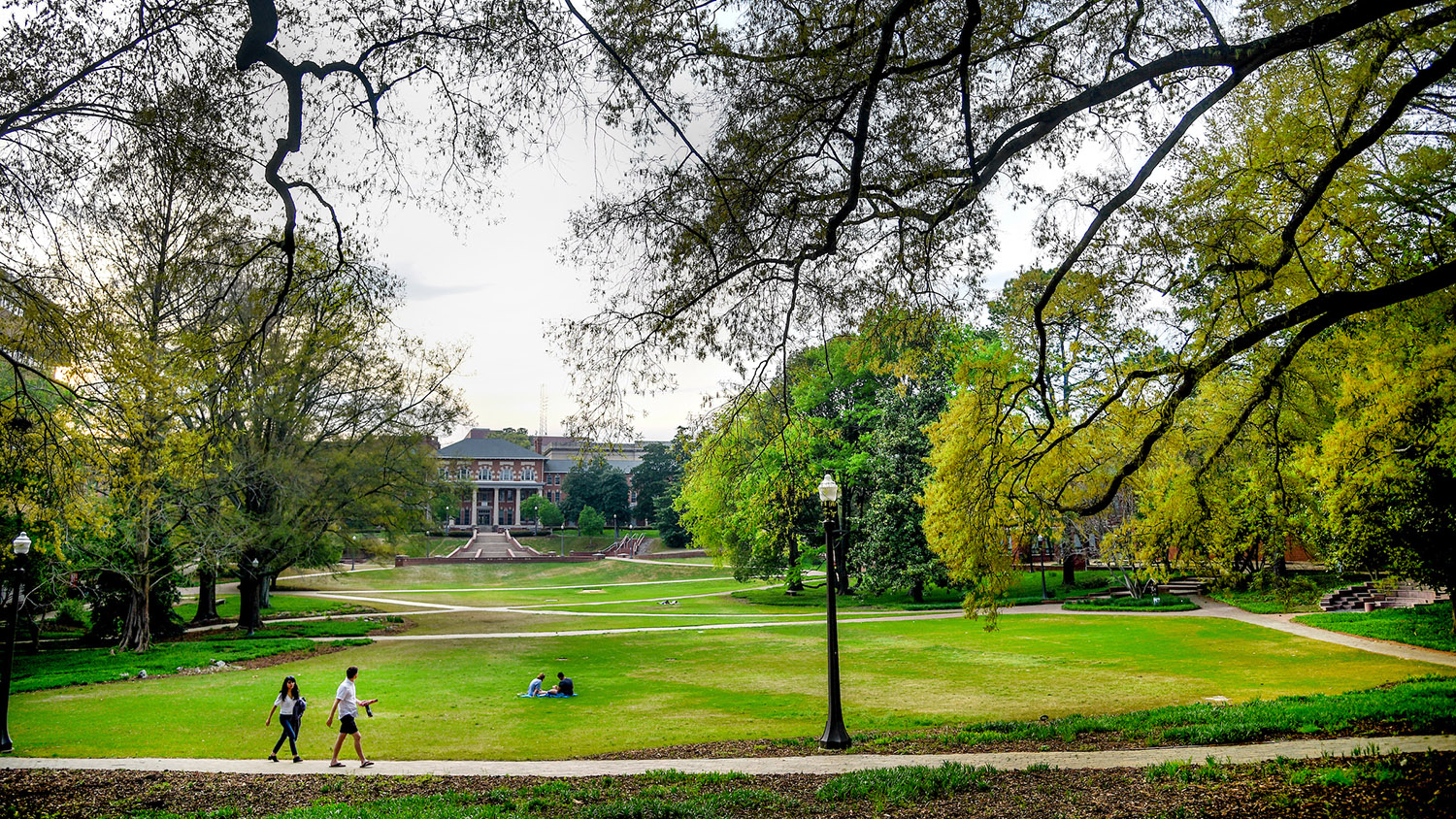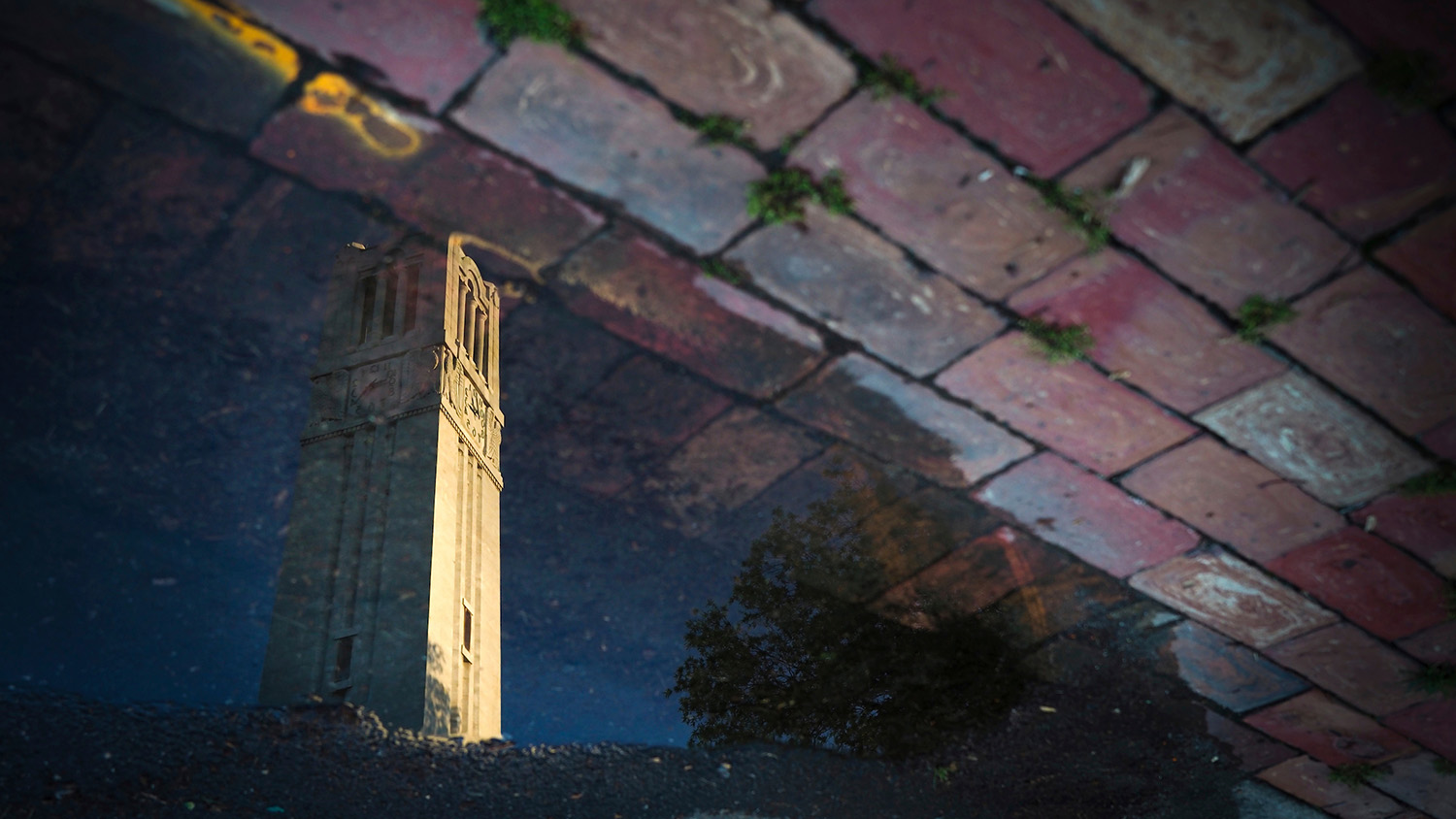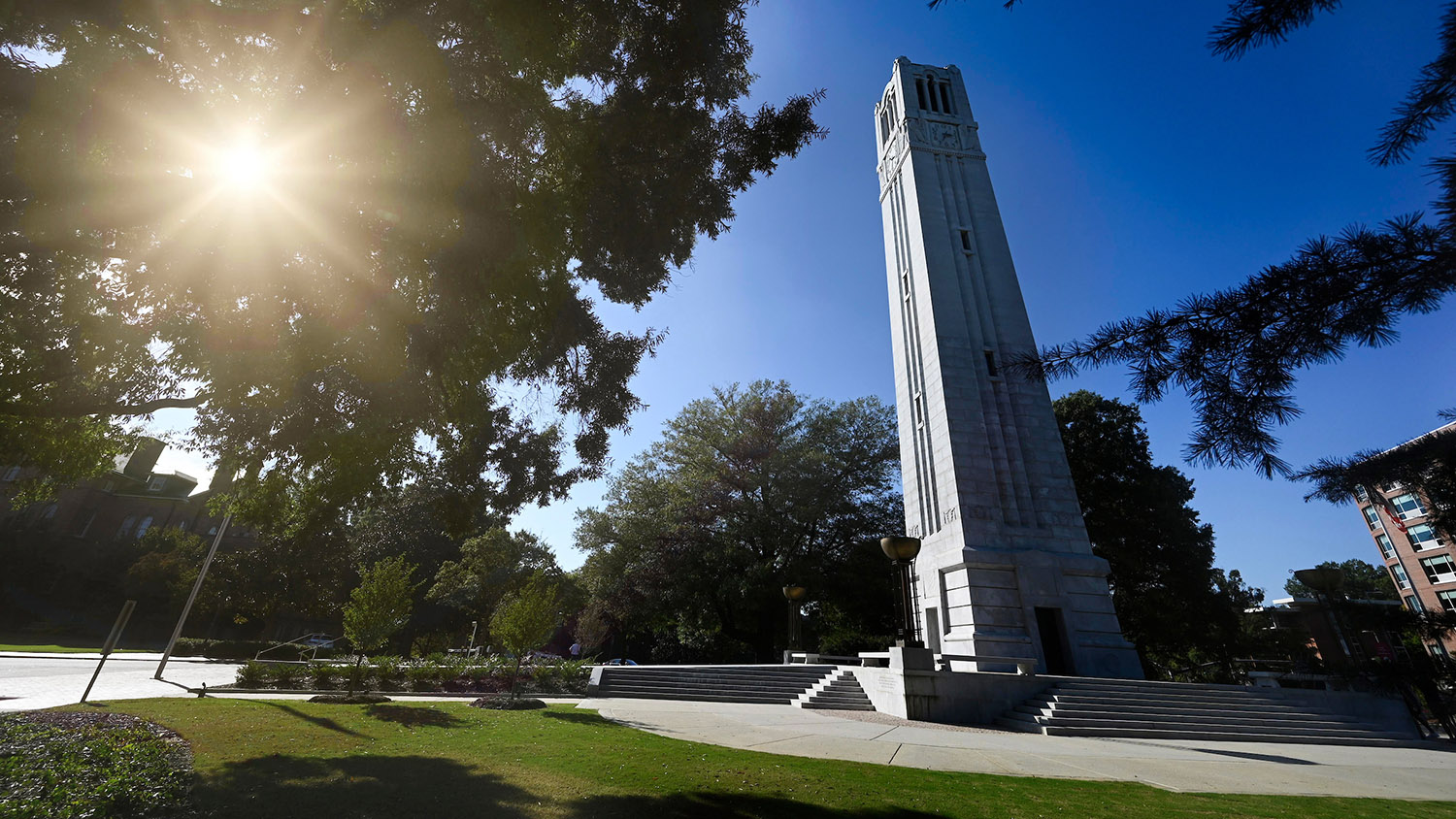Alumna’s Passion for Social Justice Leads to Iraq
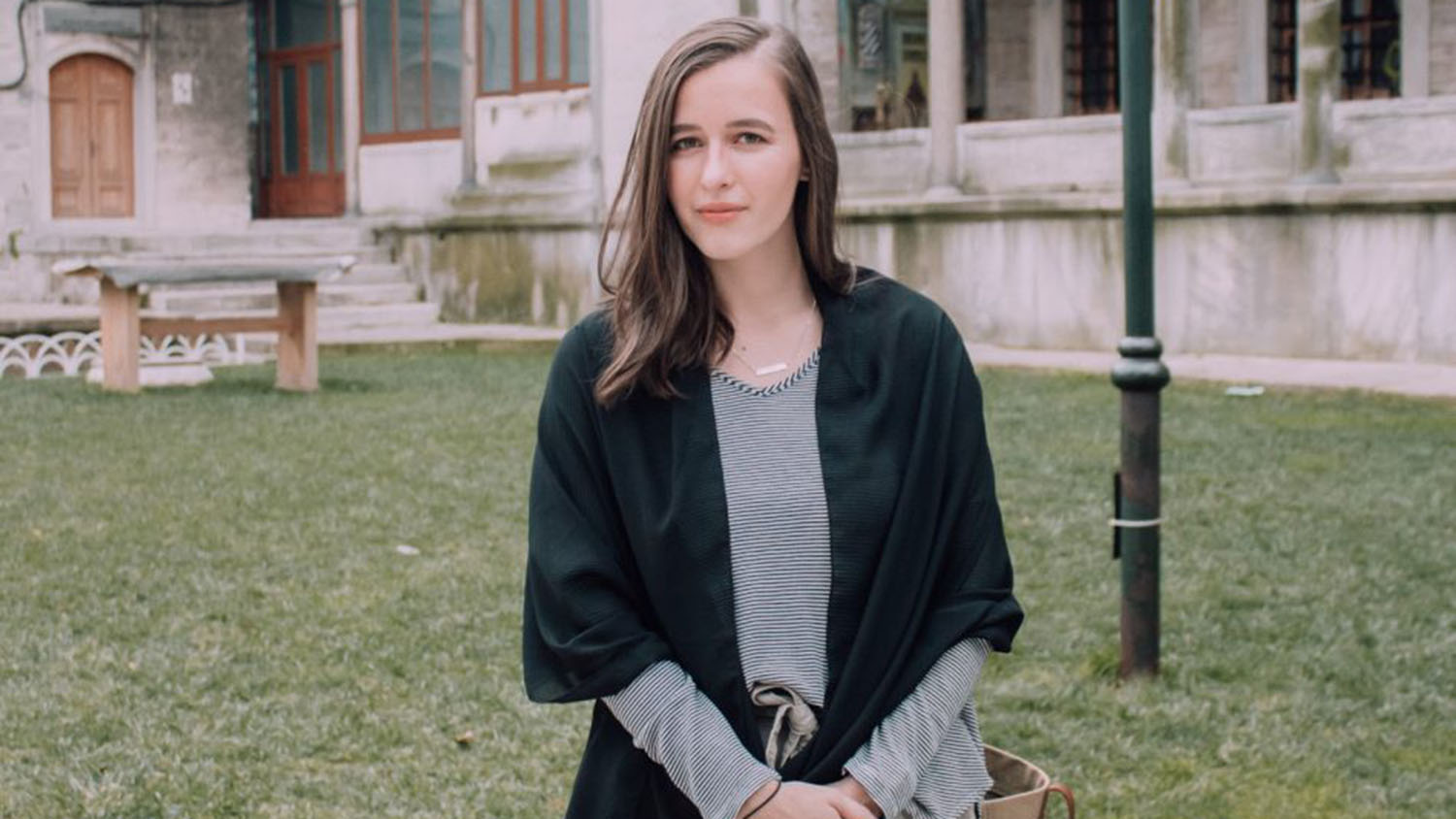
Recent MALS graduate Audrey White (’19) is the first NC State student to complete the accelerated bachelor’s/master’s (ABM) degree program that enables exceptional students to earn their undergraduate and graduate degrees in a compressed timeframe. We spoke with White recently about her experiences as a MALS student, and where her passion for social justice — fueled by her studies — is taking her.
What brought you to MALS? What was attractive about the degree?
I’ve always had a variety of interests, such as a passion for women’s issues, criminal justice reform, refugees, anti-human trafficking work and using graphic design and marketing to positively affect social change. As a junior at NC State, I was struggling to decide which of these issues to focus on for my career. When I learned that the MALS program would allow me to choose my own course of study, I knew it was for me.
Tell us about your MALS concentration, and the significance your concentration held for you.
I entitled my concentration simply “Social Justice” because I wanted to study a variety of different justice issues the world faces. I chose classes that gave me experience in social work, child welfare, systemic injustice, law and policy, and ethical and sustainable humanitarian aid — all of which I put into practice in my current work.
Where have your studies taken you?
A week after graduating from the MALS program, I moved to Iraq to work with Preemptive Love Coalition, a humanitarian aid organization working in polarizing conflict zones throughout Iraq and Syria. Their portfolio of services includes emergency aid and relief to families persecuted by terrorism and violence and micro-economic development programs that empower women and men to provide for their own families. I’ve now lived and worked as the design and development officer in Iraq for six months, and I’m learning Arabic (Iraq’s official language) and some Kurdish (the local language). I am responsible for coordinating and implementing empowerment maker programs in local refugee camps, building relationships with makers to help grow their own products, and teaching refugee children English.
I get to see transformation all around me every day. Refugee children realizing that there is more to life than war, that they have a future outside of a camp, that they have value and worth despite all that the world tells them, and that they can be a part of rebuilding the world and bringing peace to their communities. It’s one of the most beautiful and meaningful things I’ve ever experienced.
How are your MALS studies enhancing your life and work?
I didn’t start my life caring about ending war, waging peace or empowering displaced people. In my daily life, I was typically more concerned about being safe, comfortable and successful in a Western sense. But while I was in the MALS program, I experienced a dramatic shift in my views that led me to learn about the global injustice, inequality and oppression that exists outside my own lived experience. I read dozens of books on racism, trauma, poverty, criminal justice reform, social work, child welfare, politics and feminism. I changed my MALS plan of work to reflect my new values. I researched human trafficking in North Carolina refugee communities for my MALS final project, and identified problems faced by refugees, analyzed the strengths and weaknesses of the nine refugee resettlement agencies active in our state and argued that there is a significant need within the refugee community for education, training on cultural differences and support from law enforcement and resettlement agencies in order to combat trafficking. Every refugee community already holds what they need to thrive. We just need to empower them to meet their own needs.
I believe it’s my responsibility to leverage my privilege, opportunities and advantages by speaking out against injustice and entering into the suffering of others. The classes I chose while pursuing my MALS degree heightened my passion for justice, gave me culturally sensitive skills and taught me that my experiences are not normative or indicative of how all cultures function. These skills are invaluable while living in a cross-cultural setting.
What is your favorite memory from your time in MALS?
Some of my fondest memories are from Dr. Bob Patterson’s Global Sustainable Human Development seminar. Dr. Patterson truly believes that his students are capable of changing the world, and he encouraged us to do so through his enthusiasm for our personal growth and for ethical human development. He would stand on chairs and tables to take group photos of our class and told beautiful stories that inspired me to live my life for the vulnerable. His carefully-picked guest speakers challenged me to seek more knowledge about global injustice outside the classroom. I credit this class for kick-starting a journey that led me to move to Iraq.
- Categories:
